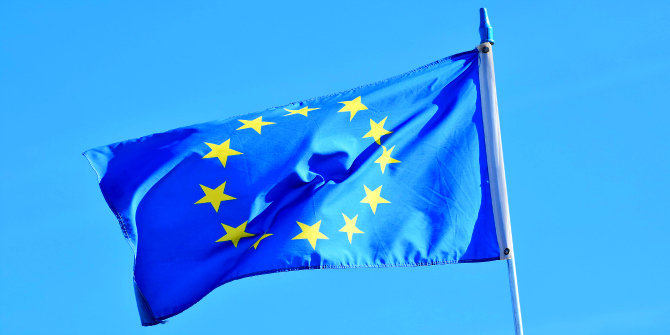What makes sovereignty possible? Drawing on the example of citizenship for sale programmes, J. Samuel Barkin argues that sovereignty is built on state collusion – states work together to privilege sovereignty in global politics because they benefit from its exclusivity.
Last summer, the Guardian published a series of stories on the alarming participants in the ‘citizenship for sale’ programme in Vanuatu. They reported that the programme, which charges $130,000 USD for a single person or $180,000 for a family of up to four, provides purchasers with citizenship, including the right to live in Vanuatu; Commonwealth citizenship; no income, wealth, inheritance, or property taxes; and visa-free travel to 113 countries, including the United Kingdom and the European Union – all without ever entering Vanuatu.
While Vanuatu is neither the first nor the only country to introduce a ‘citizenship for sale’ scheme, it has earned significant notoriety because of the notorious people who seem to have taken advantage of citizenship purchasing opportunities. Decrying free access to Europe for “crypto moguls, wanted men, and even a prime minister,” Guardian reporters Euan Ward and Katie Lyons warn of an unanticipated scenario where ‘bad people’ buy citizenship in Vanuatu, change their names, obtain a passport in their new names, and travel unfettered in Europe despite being unwelcome.
More than half of the purchasers of Vanuatu passports are Chinese nationals, but the reporters raised flags about other newly-minted Vanuatu citizens, including Italian businessman Gianluigi Torzi, and South African alleged cryptocurrency thieves Raees and Ameer Cajee. The account emphasises the vulnerability to the EU of non-EU nationals in this situation, as do other stories about citizenship-for-sale schemes in British and European outlets, including the BBC’s coverage of the Maltese scheme. Perhaps for these reasons, in recent years the EU has encouraged its members and surrounding states to halt passport-for-sale programmes, and Vanuatu is at risk of losing its citizens’ rights to travel visa-free to the UK and EU.
At first glance, the citizenship-for-sale programmes in Vanuatu and elsewhere look like they expose a weakness in – if not breakdown of – state sovereignty, and that a crackdown on these programmes would herald a rehabilitation of state sovereignty. From Vanuatu, the BBC quotes a journalist asking “Is it right to sell our hard-won sovereignty to the highest bidder?” while Owen Parker characterises these programmes as “the commercialisation of sovereignty” which potentially heralds a very different type of post-national citizenship than the one that the EU envisioned in its formation. This approach sees the tightening of regulations against citizenship sale as a way for states to regain control.
Yet another approach suggests that citizenship-for-sale programmes are themselves a display of sovereignty. Jason Sharman, studying microstates, notes that states “selling sovereign prerogatives” shows the strength of micro-state sovereignty. After all, a sovereign state – any sovereign state, from the smallest to the largest – should, as a principled part of its sovereignty get to select its citizens. Some right-wing groups frame citizenship-for-sale as putting sovereignty where it should be: in ‘the man’ and not ‘the state.’ Discussing the Maltese scheme, Ayelet Shachar and Rainer Baubock characterise EU intervention in Malta’s distribution of passports-for-money as an intervention in Malta’s sovereignty from the EU. In this view, citizenship-for-sale is an expression of sovereignty and regulating it limits sovereignty.
States work together to privilege sovereignty in global politics because they collectively benefit from sovereignty’s exclusivity.
So which is it? My recent book, The Sovereignty Cartel, suggests that both of these approaches – and the debate about citizenship-for-sale as a whole – miss a fundamental property of sovereignty, and in so doing, fail to see that both citizenship-for-sale programmes and their regulation are tools of the sovereignty cartel. I make the argument that sovereignty itself is a product of state collusion.
Sharman notes that “the current international system presents even its smallest and weakest members with choices rather than imperatives.” This is true, but why is the interesting part. Looking at different phenomena in global politics from international courts to trade to migration and citizenship, I demonstrate that states work together to privilege sovereignty in global politics because they collectively benefit from sovereignty’s exclusivity. The association of the state and sovereign property rights benefits all states – big and small, powerful and weak, friend and enemy – and, as such, they collude to maintain sovereignty’s continuing conceptual and empirical dominance.
In the book, I discuss various commercialisations of sovereignty, including flags of convenience and citizenship-for-sale. Empirically, I suggest that the sovereignty cartel has a high but not unlimited tolerance for these schemes because of its interest in reifying state sovereignty as a property right. While the tolerance is high, it is limited by perceptions that one state’s exercising of this sovereignty poses a significant imposition on another state’s ability to exercise its sovereignty. In that case, the sovereignty cartel defends states’ sovereign abilities to control who enters and exits their territory effectively. In other words, the sovereignty cartel makes possible both citizenship-for-sale and the pushback these programmes receive.
What is ‘at stake’, then, in citizenship-for-sale programmes is not only the ability of states to choose their citizens, or the risk that ‘bad’ people will circumvent travel restrictions – the debate itself presents an opportunity to reify, and prop up, a social construction of sovereignty in which all states have a vested interest. For that part, though, we will need to look beyond the Guardian’s coverage.
For more information, see the author’s new book, The Sovereignty Cartel (Cambridge University Press, 2021)
Note: This article gives the views of the author, not the position of EUROPP – European Politics and Policy or the London School of Economics. Featured image credit: Mathias P.R. Reding on Unsplash





Start with the questions of the EU….. firstly the EU is not a sovereign State…remember the EU which is only a Economic Union.. A person born in a member State acquires citizenship of their State that they are born in not the EU…that State being an EU member their citizens qualify for ‘free movement throughout the EU without any control.’
why is there a difference between Golden VISA programmes for Permanent Residence and economic citizenships ? Are they not all but the same….both status can only be granted by a sovereign State ? A financial consideration is asked for in both cases….payable to the issuing sovereign State not the EU.
The EU cannot and does not issue a passport it does concede with agreement of all sovereign States members of the EU that citizens of member States have the right of free passage thru the countries which form the economic union of the EU.